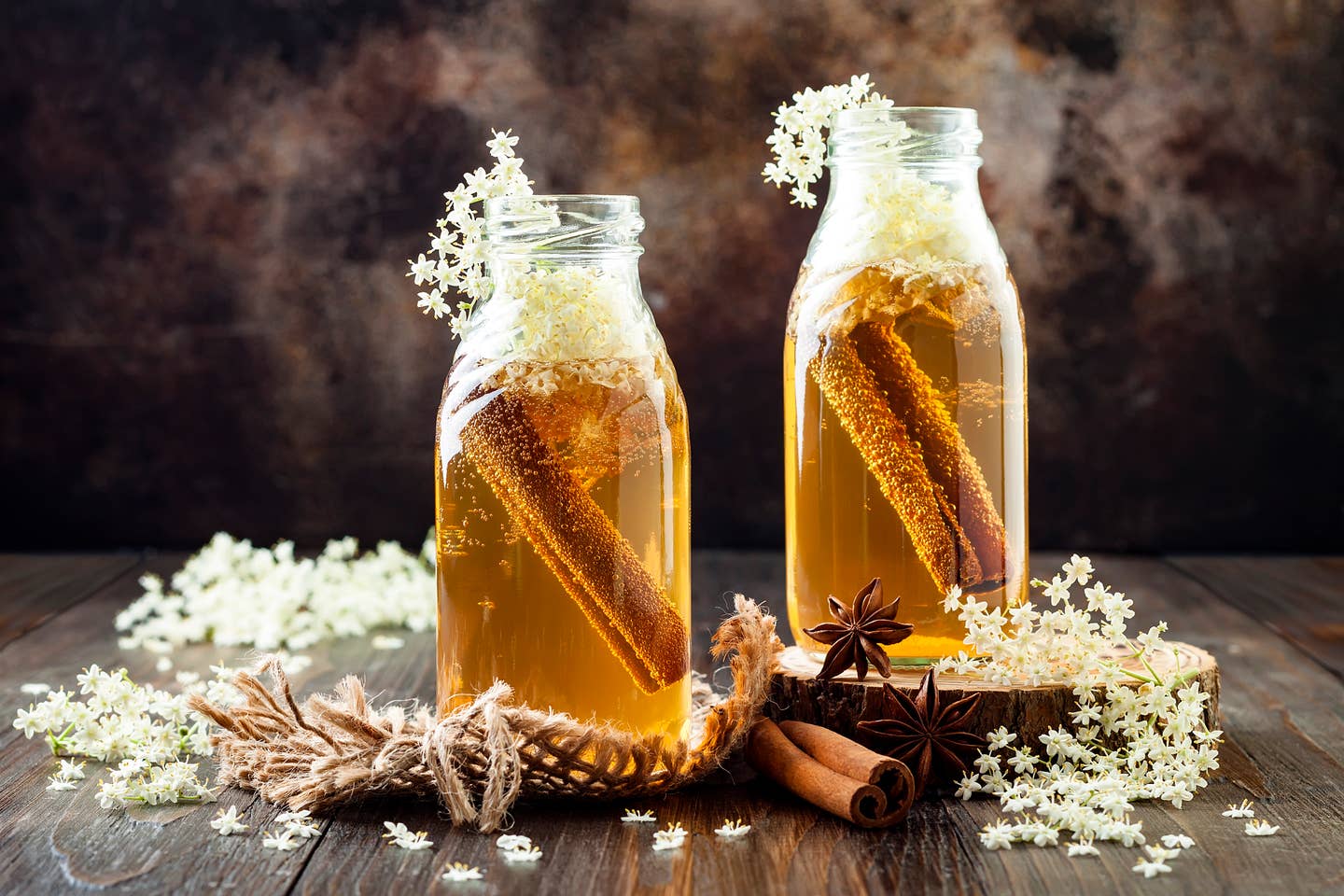
15 Natural Ways to Add More Probiotics and Prebiotics to Your Diet
You know that eating more plants does wonderful things for your health, but did you know that eating a plant-based diet is one of the best things you can do for a healthy gut?
Following a plant-based diet promotes the “good” bacteria in your gut, which creates a diverse microbiome for overall good health, according to a recent article in Frontiers in Nutrition. Your gut microbiome is made up of trillions of fungi and bacteria, and keeping the balance toward "good" bacteria can have a beneficial effect on your heart health and other related systems that are actually nowhere near your gut (such as your skin, overall energy and fatigue, your immune system and ability to handle stress are all triggered by the microbiome, new research is finding). Recent studies have been looking more closely at the gut microbiome’s effects on your whole body health and how what we eat impacts the balance of bacteria and our overall health and ability to fight off disease.
Here, experts share why you need to eat probiotics and prebiotics daily, as well as the best sources of them on a plant-based diet.
What are probiotics?
Probiotics help to balance the healthy (good) bacteria in our bodies. “Research shows that when the bacteria in the body is out of balance and the bad bacteria overtake good bacteria in our bodies, it negatively impacts health and increases the risk for disease,” says Tammy Lakatos Shames, RDN, CDN, CFT, one half of The Nutrition Twins. Probiotics can help to restore the natural balance of gut bacteria. This, in turn, helps you stay healthy, boosts your immune system, and allows your body to fight off any potential illness that's going around.
"Probiotics are super helpful for building up your immune system and promoting great health," says Jessica D'Argenio Waller, MS, CNS, LDN, clinical nutritionist and contributing editor at The Beet. “They help make vitamins in the body. They also help make neurotransmitters, like serotonin,” she says. “We need to take them in from external sources [like plant foods] because we can't create our own bacteria.”
Some of the benefits probiotics can have on your health include weight loss, improved digestive health, and better immune health, adds Lakatos Shames.
You want to make sure that you're replenishing your microbiome with different organisms in a variety of healthy foods as much as possible because if not, then you'll start to see inflammation increase and you may get sick more often, says Waller.
What are prebiotics?
Prebiotics are the fuel and nourishment for probiotics, so they help probiotics to flourish. “Without prebiotics, the good bacteria will die,” says Lyssie Lakatos, RDN, CDN, CFT, the other half of The Nutrition Twins. “Prebiotics are a type of fiber; they’re a carbohydrate that humans can't really digest. So they actually get fermented in the colon by microflora microbiome,��� says Waller. Examples of prebiotics are inulin, fructooligosaccharides (FOS) and beta glucan.
Here are great plant-based sources of probiotics and prebiotics:
Probiotics:
- Kimchi: This Korean fermented veggie “slaw” side dish is often made with cabbage, radishes, garlic, cucumbers, onions and often red pepper flakes.
- Sauerkraut: The German cabbage dish is fermented cabbage that populates your gut with good bacteria.
- Miso: These Japanese fermented soybeans can also help cultivate good gut bacteria. You’ll likely find this as a paste and use it in a soup, sauce or dressing. “Try to find organic and non-GMO vegetables and legumes as much as possible, especially with soy products like miso or tempeh because 90 percent of soybeans are GMO and pesticide-laden,” says Waller. “Pesticides can kill off all of your good bacteria.”
- Kvass: This fermented beverage (also spelled kvas) can be made with bread in a Russian-style beer version or using fruits and vegetables like this fruit kvass recipe. It’s kind of like kombucha, the fermented tea beverage that also contains probiotics, says Waller.
- Natto: This Japanese food is made from fermented soybeans. It’s very smelly, and it may be hard to find, but it's really rich in probiotics, vitamin K2 and it’s good for bone health and cardiovascular health, says Waller.
- Probiotic supplement: “I recommend clients supplement with a probiotic pill, especially if it’s during flu season or feel like you're getting sick, or you’re traveling or having digestive issues,” says Waller. “You can have an overgrowth of good bacteria the same way you can have an overgrowth of bad bacteria,” says Waller. Change out the strains to get a wide variety of cultures every 30 days. “I suggest taking a probiotic that includes a prebiotic formula as well because the prebiotic is actually the ‘food’ that the bacteria will feast on in the body.” Waller likes Seed for their probiotic/prebiotic supplements.
Prebiotics:
All of these foods are good sources of prebiotics and can be eaten cooked or raw:
- Onions
- Garlic
- Leeks
- Asparagus
- Artichokes
- Seaweed
- Bananas
- Apples
- Ground flaxseeds
- Chia seeds
More From The Beet






